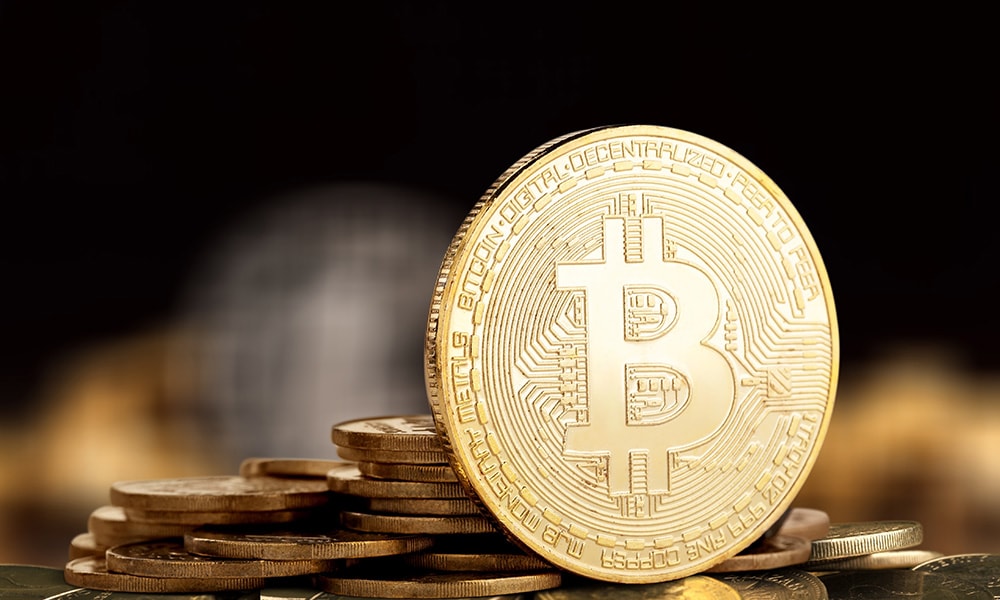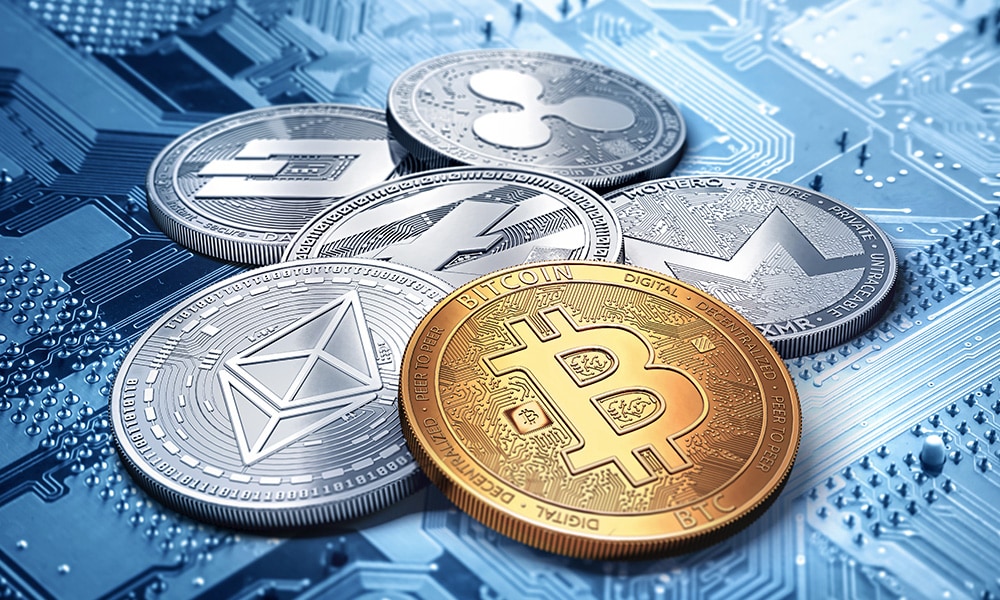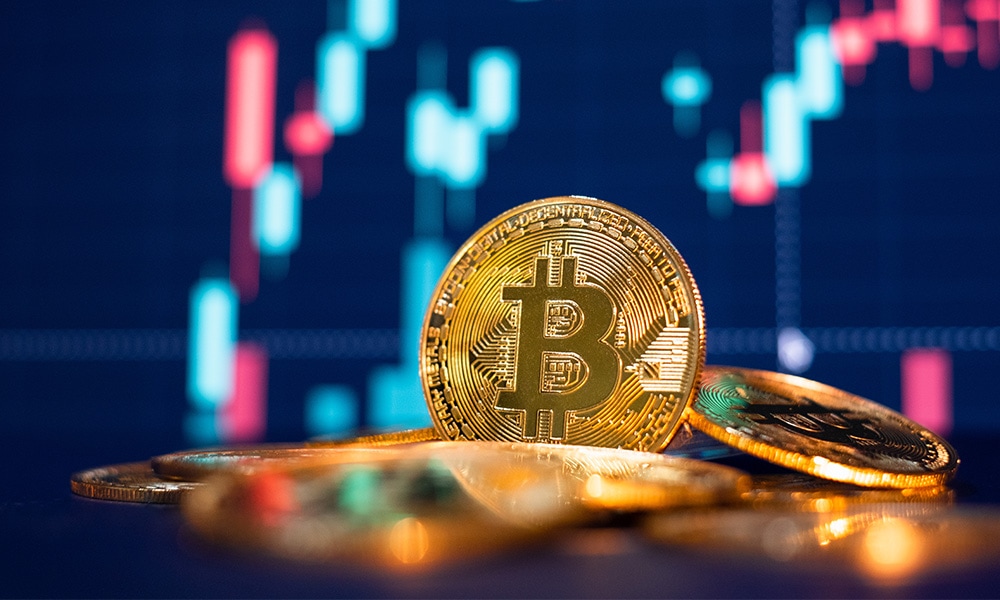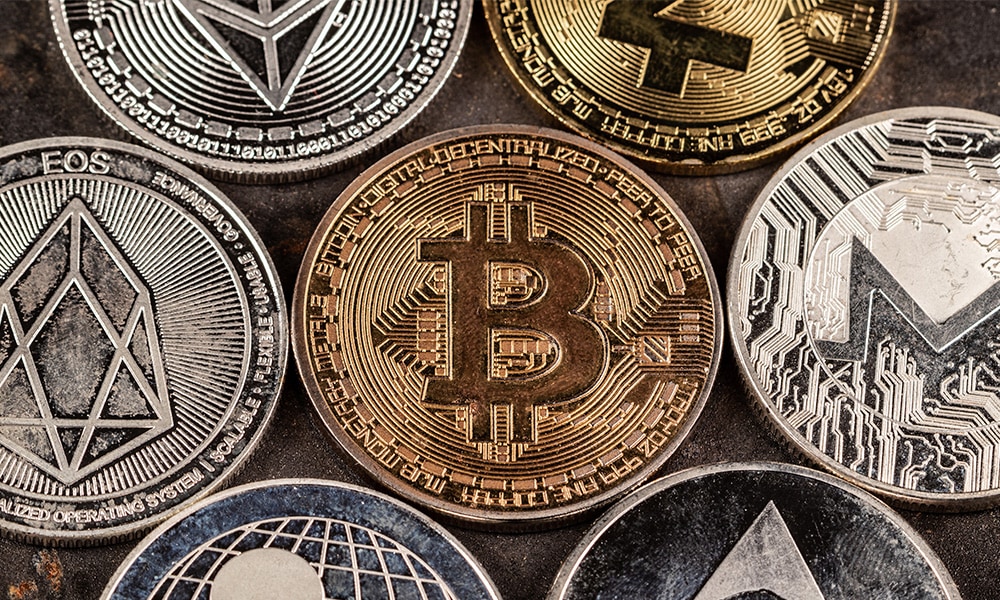2021 was a year of epic growth for cryptoassets.
We saw the market take a big leap towards maturity as trends such as non-fungible tokens (NFTs) and the metaverse gained momentum, and regulators contended with the asset class’s growing role in the global economy.
More rapid change can be expected in the year ahead, with the crypto market hitting maturity amidst a changing macro environment and red hot inflation readings. In five concise trends, here is what you should be watching as we move into 2022.
Crypto assets are unregulated & highly speculative. No consumer protection. Capital at risk.
Cryptoassets are highly volatile and unregulated in the UK. No consumer protection. Tax on profits may apply.
1. NFTs move beyond JPEGs
Non-fungible tokens (NFTs) hit the mainstream in 2021. Brand names from Adidas to Budweiser and Pepsi to Warner Bros issued their own collections, sports fans rushed to buy tokenized cards for their teams on platforms such as Chiliz, and luxury fashion houses including Givenchy dropped tokens to heighten exclusivity.
All of this demonstrated the revolutionary potential of the “NFT” — which was proclaimed Collin’s Dictionary’s word of the year.
As we move into 2022, NFTs are set to move beyond just collectible JPEGs. The NFL is now working with Polygon to use NFTs for ticketing, TikTok has released trending videos as NFTs, and a diverse range of companies are starting to use the unique tokens to power radical change in how products are funded, licensed and promoted.

Crypto assets are unregulated & highly speculative. No consumer protection. Capital at risk.
Cryptoassets are highly volatile and unregulated in the UK. No consumer protection. Tax on profits may apply.
2. Blockchain gaming and metaverse boom
2021 saw the rise of a younger, faster generation of blockchains such as Solana, which offer the high performance needed for sophisticated blockchain-based gaming.
Meanwhile, the first crypto games hit the big time. Axie Infinity attracted almost 2 million daily users with play-to-earn mechanisms, and investment poured into metaverse projects from all angles: Facebook rebranded to Meta and tech giants Microsoft and Amazon dipped their toes, while venture capitalists committed billions to making the metaverse reality.
Moving into 2022, this sector of the market is primed to hit the mainstream. All we are waiting for is the catalyst of a high-quality game or social platform that can bring in a broad audience beyond just crypto enthusiasts.

Crypto assets are unregulated & highly speculative. No consumer protection. Capital at risk.
Cryptoassets are highly volatile and unregulated in the UK. No consumer protection. Tax on profits may apply.
3. Layer 2s steal the limelight
The popularity of decentralized finance (DeFi) and NFTs has created bottlenecks on Ethereum, with congestion pushing network fees to all-time highs.
Against this backdrop, Layer 2 scaling solutions such as Polygon (MATIC) have experienced epic growth by offering faster speeds and lower fees with no compromise to decentralization or security.
This trend is set to accelerate in 2022, boosted by new cryptographic innovations — such as Optimistic Rollups and Zero-Knowledge Rollups — which are finally ready for action after years of development.

Crypto assets are unregulated & highly speculative. No consumer protection. Capital at risk.
Cryptoassets are highly volatile and unregulated in the UK. No consumer protection. Tax on profits may apply.
4. Crypto payments hit the mainstream
2021 showed that payment giants see crypto not as a threat, but as an opportunity: Visa launched a crypto advisory service, Mastercard introduced crypto support, and WhatsApp began testing crypto payments via the Novi wallet.
Governments have seen the potential of crypto payments too. El Salvador claimed to be saving $400 million a year in Western Union fees by using Bitcoin remittances, and a parallel government in Myanmar adopted Tether as an official currency.
These events could be the first signs of a global transformation in payments and remittances; one that is likely to gain momentum in 2022 as more organizations realize that money can be exchanged instantly and inexpensively — as easily as sending an email.

Crypto assets are unregulated & highly speculative. No consumer protection. Capital at risk.
Cryptoassets are highly volatile and unregulated in the UK. No consumer protection. Tax on profits may apply.
5. Even more regulatory scrutiny
With former blockchain professor Gary Gensler leading the charge at the U.S. Securities and Exchange Commission (SEC), authorities around the world are racing to roll out regulatory frameworks.
In the US, regulators are discussing a “crypto sprint” to quickly bring the industry into line, while across the Atlantic, the European Union’s (EU) proposed regulatory framework — Markets in Crypto Assets (MiCA) — is close to becoming law.
This activity will likely mean more scrutiny than ever before for the digital asset ecosystem, but if the approval of multiple Bitcoin ETFs around the world and the positivity of the recent US congressional crypto hearing are any indication, then 2022 could be the year we see regulators cautiously embrace cryptoassets.
Stay ahead of these trends on eToro
To keep up-to-date in the rapidly evolving cryptoasset market, sign up to eToro for real-time insights and the latest market analysis on the world’s leading social trading platform.
Crypto assets are unregulated & highly speculative. No consumer protection. Capital at risk.
Cryptoassets are highly volatile and unregulated in the UK. No consumer protection. Tax on profits may apply.
Cryptoasset investing is unregulated in some EU countries and the UK. No consumer protection. Your capital is at risk.

